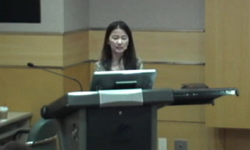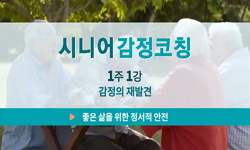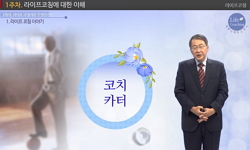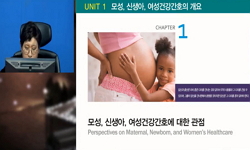Objective Contact frequency with adult children plays a critical role in late-life depression. However, evidence on possible moderators of this association remains limited. Moreover, considering alterations in contact modes after the coronavirus disea...
http://chineseinput.net/에서 pinyin(병음)방식으로 중국어를 변환할 수 있습니다.
변환된 중국어를 복사하여 사용하시면 됩니다.
- 中文 을 입력하시려면 zhongwen을 입력하시고 space를누르시면됩니다.
- 北京 을 입력하시려면 beijing을 입력하시고 space를 누르시면 됩니다.




Moderators of the Association Between Contact Frequency With Non-Cohabitating Adult Children and Depressive Symptoms Among Community-Dwelling Older Adults
한글로보기https://www.riss.kr/link?id=A108721167
-
저자
Rho Yujin (Department of Medicine, Ajou University School of Medicine) ; Kim Minji (Department of Medicine, Ajou University School of Medicine) ; Beon Jungeun (Department of Medicine, Ajou University School of Medicine) ; Kim Yeojin (Department of Psychiatry, Ajou University School of Medicine) ; Yoon Sunwoo (Department of Psychiatry, Ajou University School of Medicine) ; Nam You Jin (Department of Psychiatry, Ajou University School of Medicine) ; Hong Sunhwa (Department of Psychiatry, Ajou University School of Medicine) ; Cho Yong Hyuk (Department of Psychiatry, Ajou University School of Medicine) ; Son Sang Joon (Department of Psychiatry, Ajou University School of Medicine) ; Hong Chang Hyung (Department of Psychiatry, Ajou University School of Medicine) ; Roh Hyun Woong (Department of Psychiatry, Ajou University School of Medicine)

- 발행기관
- 학술지명
- 권호사항
-
발행연도
2023
-
작성언어
English
- 주제어
-
등재정보
KCI등재,SCIE,SSCI,SCOPUS
-
자료형태
학술저널
-
수록면
758-767(10쪽)
- DOI식별코드
- 제공처
- 소장기관
-
0
상세조회 -
0
다운로드
부가정보
다국어 초록 (Multilingual Abstract)
Objective Contact frequency with adult children plays a critical role in late-life depression. However, evidence on possible moderators of this association remains limited. Moreover, considering alterations in contact modes after the coronavirus disease-2019 pandemic, there is a need to investigate this association post-pandemic to develop effective therapeutic interventions.Methods This study included 7,573 older adults who completed the Living Profiles of the Older People Survey in Korea. Participants’ contact frequency and depressive symptoms were analyzed. Regression analysis was performed after adjusting for covariates. The moderating effects of variables were verified using a process macro.Results Multivariable logistic regression analysis revealed that infrequent face-to-face (odd ratio [OR]=1.86, 95% confidence interval [CI]=1.55–2.22) and non-face-to-face contact (OR=1.23, 95% CI=1.04–1.45) in the non-cohabitating adult children group was associated with a higher risk of late-life depression compared to that in the frequent contact group. Linear regression analysis indicated consistent results for face-to-face and non-face-to-face contact (estimate=0.458, standard error [SE]=0.090, p<0.001 and estimate=0.236, SE= 0.074, p=0.001, respectively). Moderation analysis revealed that the association between late-life depression and frequency of face-toface contact was moderated by age, household income quartiles, number of chronic diseases, physical activity frequency, presence of spouse, nutritional status, and whether the effect of frequency of non-face-to-face contact on late-life depression was increased by participation in social activity, frequent physical activity, and good cognitive function (p for interaction<0.05).Conclusion Frequent contact with non-cohabitating children lowers the risk of depression later in life. Several variables were identified as significant moderators of contact frequency and depression symptoms.
동일학술지(권/호) 다른 논문
-
- 대한신경정신의학회
- Tian Qin
- 2023
- KCI등재,SCIE,SSCI,SCOPUS
-
- 대한신경정신의학회
- Park Jin-Young
- 2023
- KCI등재,SCIE,SSCI,SCOPUS
-
Relationship Between Social Withdrawal (Hikikomori), Personality, and Coping in an Adult Population
- 대한신경정신의학회
- Céline Bonnaire
- 2023
- KCI등재,SCIE,SSCI,SCOPUS
-
- 대한신경정신의학회
- Kim Seongju
- 2023
- KCI등재,SCIE,SSCI,SCOPUS




 KCI
KCI 스콜라
스콜라






